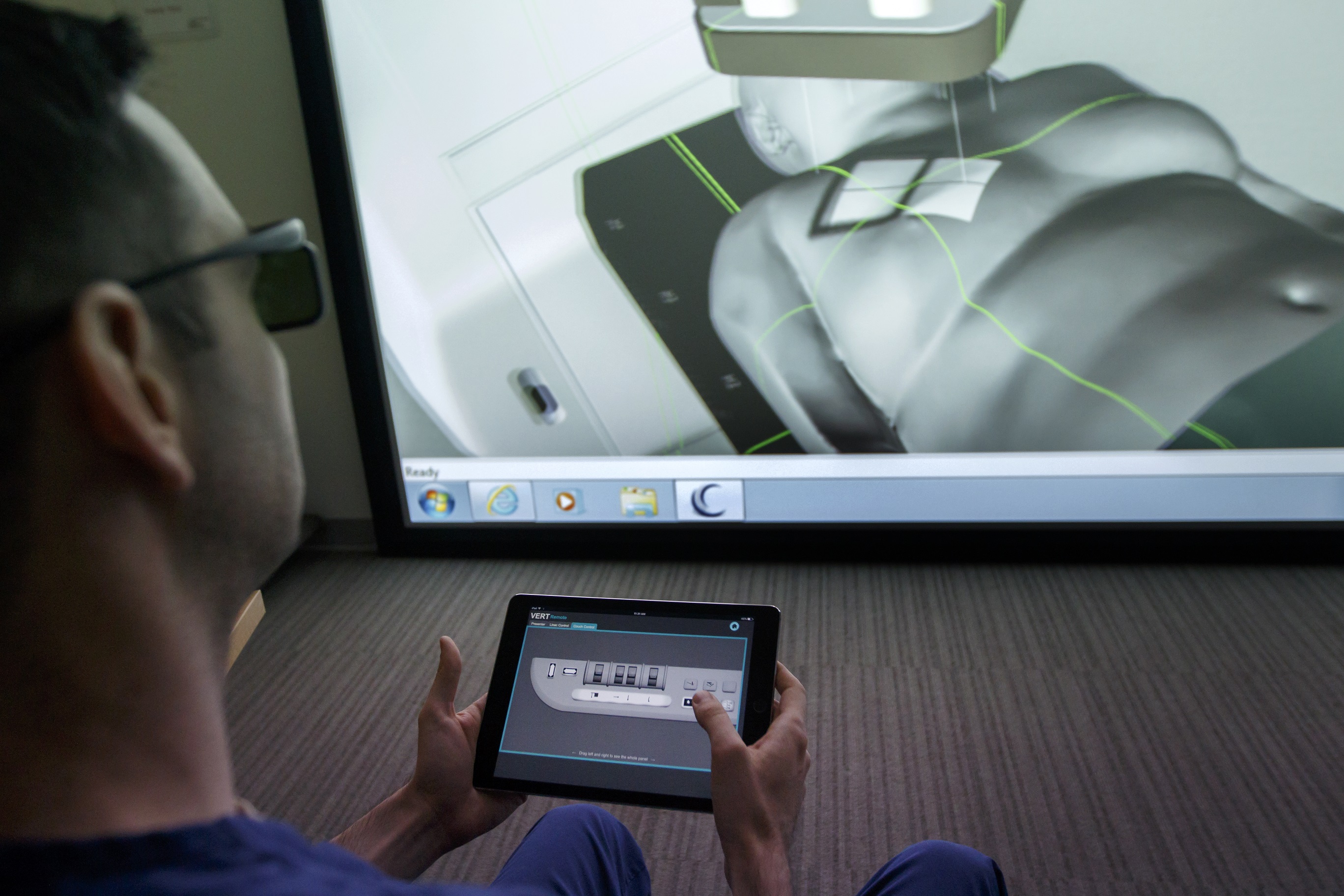Technical Standards
For successful completion of the course of study for the degree of Bachelor of Science in Radiation Therapy, candidates for graduation must possess the knowledge, skills, attitudes and judgment to function technically and provide patient centered care in clinical situations. Candidates must demonstrate the capacity to develop academic and emotional maturity as well as collaborative skills to function effectively in a radiation oncology team. All students admitted/completing the Program must meet, with or without reasonable accommodation, the following technical requirements:
1. Have the strength, motor coordination and manual dexterity to:
- Transport, move, lift or transfer patients from wheelchair or stretcher to a patient support assembly (table).
- Lift, move, adjust, and manipulate a variety of devices and equipment necessary for procedures.
- To arrange the devices and equipment properly with respect to the patient and the treatment prescription according to established procedures and standards of speed and accuracy.
- Physically place patient in proper position for procedure according to established standards.
2. Have communication and interpersonal skills necessary to:
- Communicate verbally in an effective manner to deliver explanation and directions to patients as it relates to the procedure and patient care.
- Properly communicate and interpret written or verbal instructions from therapists, physicians, physicists, dosimetrists and/or other personnel.
- Record and verify all necessary treatment data.
3. Be capable of:
- Handling stressful situations related to emotional, technical and procedural standards and patient care situations.
- Providing physical and emotional support to the patient during procedures and be able to respond quickly to situations requiring basic life support and emergency care of the patient in the absence of, or until the physician arrives.
4. Have the mental / intellectual capacity to:
- Calculate and select proper technical factors according to individual prescriptions with accuracy and speed.
- View and evaluate digital imaging results for the purposes of determining proper positioning, blocking and field arrangements.
- Document patient identification and other pertinent technical information as required.
Students/applicants who may have questions regarding these technical standards or who believe they may need to request reasonable accommodation in order to meet the standards are encouraged to contact the OHSU Student Access.
Policy No. 02-70-010, effective May 31, 2012 (revised March 5, 2021)
This policy is to ensure that all candidates for an OHSU degree or certificate possess the essential skills and abilities necessary to complete the curriculum successfully. To be qualified for health science programs at OHSU those individuals must be able to meet both OHSU's academic standards and the technical standards, with or without reasonable accommodations.
Health Sciences programs have a societal responsibility to train competent healthcare providers and scientists that demonstrate critical judgment, extensive knowledge and well-honed technical skills. A number of individuals with disabilities, as defined by Section 504 of the Rehabilitation Act and the Americans with Disabilities Act, are qualified to study and work as healthcare professionals and scientists with the use of reasonable accommodations.
Technical Standards include nonacademic criteria that reflect the ability to:
- Acquire information from experiences and demonstrations conveyed through online coursework, lecture, group seminar, small group activities, and other formats.
- Recognize, understand and interpret required instruction materials including written documents, computer-information systems, and non-book resources.
- Manipulate the equipment, instruments, apparatus, or tools required to collect and interpret data appropriate to the domain of study, practice or research.
- Follow universal precautions against contamination and cross contamination with infectious pathogens, toxins and other hazardous chemicals.
- Solve problems and think critically to develop appropriate products and services (e.g., treatment plan, a scientific experiment).
- Synthesize information to develop and defend conclusions regarding observations and outcomes.
- Use intellectual ability, exercise proper judgment and complete all responsibilities within a timeframe that is appropriate to a given setting.
- Communicate effectively and maintain, mature sensitive and effective relationships with all persons including but not limited to clients, patients, students, faculty, staff and other professionals.
- Operate in a safe manner and respond appropriately to emergencies and urgencies.
- Demonstrate emotional stability to function effectively under stress and adapt to changing environments inherent in clinical and professional practice, healthcare, and biomedical sciences and engineering.
